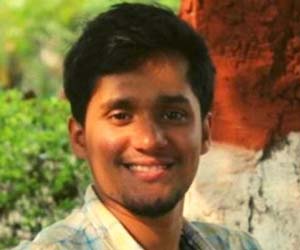On 17th May, 2023, Vivekananda International Foundation (VIF) organised a Vimarsh public lecture on ‘Hindutva and Religion’ by Prof. Arvind Sharma. Prof. Sharma, formerly of the Indian Administrative Service (IAS), is the Birks Professor of Comparative Religion in the School of Religious Studies at McGill University in Montreal, Canada. He has also taught at various universities in the United States (Northeastern, Boston, Temple, Harvard), Australia (Queensland, Sydney), and India (Nalanda). He has published extensively in the fields of Indian religions and comparative religion. He is the General Editor of the Encyclopedia of Indian Religions (Dordrecht: Springer, 2017-). Prof. Sharma was also instrumental in adopting the Universal Declaration of Human Rights by the World’s Religions, at a global conference held in Montreal, in 2016.
This lecture was the first among the lectures and discussions VIF had organised under the series called ‘Hindutva for our times’. Around a hundred years ago, in 1923, V.D Savarkar wrote a seminal work titled Hindutva: Who is a Hindu? This book gave the classical formulation for the concept of Hindutva. It would be timely to explore the underlying feature of Hindutva ideology. In that direction, the first lecture in the series “Hindutva and the Religion,” examined the role played by the Western concept of religion, once it was been applied to India, and suggest that the use of this word has seriously distorted the religious reality of India, which is best described in terms of dharma, a word, which, significantly, does not appear in the Indian Constitution. Dr. Arvind Gupta, Director, VIF, in his opening remarks of the session, raised the question that, “With the rise of ‘Hindutva’, the consciousness of Hindu identity, critique of secularism, etc, in India’s political scenario, do we have room to discuss Hindutva? How can we make such discussions more productive by elevating it beyond the concerns of identity politics?” He added that the concept of Hindutva is highly misunderstood and often leads to controversy. In the Western media, the term is used in a pejorative sense. The discussion was chaired by Shri. Gurumurthy Chairman, VIF. After the opening remarks by Dr. Gupta, the keynote address was delivered by Prof. Sharma, followed by remarks from Shri. Gurumurthy who moderated the session.
Prof. Sharma highlighted how the English language has played an important role in the process of colonialism. He mentioned how after the 19th century, the dialogues and discourses within mainstream Hinduism have been in English. This has created a major confusion, especially with the term ‘religion’ being used to explain Hinduism. The term ‘religion’ has created significant confusion in the self-understanding of cultures in India and other Asian countries like Japan. In fact, people in India or countries like Japan do not even differentiate much between religion and culture. There are several characteristics that apply to ‘religions’, which cannot be applied to Hinduism. One of the main characteristics of ‘religions’ which are not applicable to Hinduism, as mentioned by the speaker, are – religions are conclusive, exclusive, competitive, and separative. The speaker mentioned several examples to show how these characteristics do not apply to Hinduism.
In agreement with Prof. Sharma, Shri Gurumurthy, explained how the concept of Dharma has lost its meaning. He highlighted its consequence politically and culturally when Dharma is understood as religion. He added that it is not merely an intellectual exercise to discuss the difference between religion and Dharma but to understand some of the ongoing issues. The session was then open for discussion.









Post new comment